The prevalence of scams has been escalating at an alarming rate, particularly in recent times. While financial scams have always existed, the situation has taken a turn for the worse, a trend exacerbated by the COVID-19 pandemic. The Federal Trade Commission (FTC) reported a staggering 70% surge in fraud complaints from 2020 to 2021, highlighting just how serious the issue has become. Among the various types of scams, imposter schemes have emerged as the most common, with many of these also targeting bank accounts—essentially any form of deceit that compromises your financial assets.
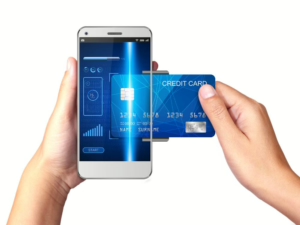
But what has fueled this rise in scams? According to Salvatore LaScala, who oversees global financial crimes and investigations at Guidehouse, a prominent consultancy firm, the pandemic played a significant role. “With people spending much more time online,” he notes, “there was a marked increase in buying, selling, donating, and engaging in various transactions that unfortunately led to a rise in fraudulent activities.”
No one is completely shielded from the threat of bank scams or wire fraud. However, financial institutions, e-commerce platforms, and retailers are stepping up their efforts to enhance fraud prevention and detection strategies to safeguard both physical and digital finances. Law enforcement agencies are also continually improving their capabilities to identify and combat online scams, including those involving services like Zelle.
You can also play a vital role in protecting yourself. Being informed about current bank scams and recognising the warning signs of phishing can significantly reduce your risk. It’s essential to stay vigilant and equipped with knowledge to navigate this evolving landscape of financial deceit. For further insights and practical advice on how to protect yourself, be sure to explore these helpful tips.
For more engaging content on technology, cleaning hacks, travel ideas, and intriguing facts throughout the week, don’t forget to subscribe to Reader’s Digest’s Read Up newsletter.
The Deceptive Overpayment Scheme
Picture this: you’ve just completed a sale, whether it’s a service you provided or a product you sold. You’re anticipating the payment to come in, and in walks a seemingly affable individual, ready to settle the deal. But instead of handing you the agreed amount, they present you with a check that’s significantly larger than what you were owed. It’s like winning the lottery, or so it seems at first glance.

Let’s say, for instance, you were expecting a payment of $2,000. Instead, this charming stranger hands you a check for $4,500. At this point, you might feel an exhilarating rush—after all, who wouldn’t be thrilled at receiving extra cash? However, before you let your excitement get the best of you, remember: this is where the trap begins to unfold.
The scammer then cleverly suggests that you return the excess amount—$2,500—by wiring it back to them through services like Zelle or another electronic transfer method. You might think to yourself, “Why not? They’ve already given me the check.” But here’s where the plot thickens. Unbeknownst to you, that check is nothing but a cleverly crafted piece of paper that will soon bounce. By the time your bank processes it and realises the funds aren’t available, the scammer has already pocketed your hard-earned $2,500, leaving you with nothing but frustration and possibly hefty fees for attempting to cash a worthless check.
Now, let’s talk about how to steer clear of this insidious scam. When engaging in transactions, it’s wise to rely on payment applications such as PayPal or to request good old-fashioned cash. These methods eliminate the risk associated with checks entirely. If you find yourself in a situation where accepting a check is unavoidable, take the precautionary step of having your bank contact the issuing bank directly to confirm that sufficient funds are indeed available.
Lastly, never accept an amount that exceeds what is owed to you unless there is tangible proof that this overage is intended as a tip or gratuity. Protecting yourself against such scams requires vigilance and prudence—so stay alert and safeguard your finances from these deceitful ploys.

The Deceptive Allure of Unexpected Checks
Imagine the thrill of receiving an unexpected check in the mail. It feels almost magical—money for nothing! What a delightful surprise that could be, right? But before you start dreaming about how to spend this windfall, pause for a moment. This scenario is often a carefully crafted trap set by cunning scam artists.
So, how does this scheme unfold? One day, you find a check waiting for you in your mailbox, seemingly from an unfamiliar sender. The intention behind this seemingly generous gift is to ensnare you in a web of deceit. Hidden in the fine print beneath the signature lies a warning, but it’s designed to go unnoticed. Consider this real-life example uncovered by the Georgia Consumer Protection Division:
“SIMPLY ENDORSE AND CASH OR DEPOSIT THIS CHECK AT ANY BANK TO AUTOMATICALLY ENROLL IN X starting with thirty days free. Unless you call to cancel during this trial, XXXXXX will notify XXXXXXX, the issuer of your XXXXXX credit card, to bill the $9.99 monthly membership fee, or current fee, to your credit card each month without your having to do anything further. You can cancel at any time after the trial period for a full refund of your current month’s paid membership fee. The $2.50 check is yours to keep.”
At first glance, it may seem harmless—a simple endorsement and voilà, cash in hand! But once you deposit that check, the real game begins. The scammer will start siphoning funds from your account, often making it incredibly challenging to put a stop to those charges.
So, how can you protect yourself from falling victim to this ruse? Always take a moment to scrutinise any check you receive for hidden fine print. If something feels off, don’t hesitate to take that check to your bank and ask them to verify the sender’s legitimacy. And before you even think about cashing it, do a quick online search for the sender’s name coupled with the word “scam.” This small step could save you from being another victim in this web of deception.

In a world where surprises can come wrapped in a shiny envelope, staying vigilant is your best defence against con artists’ artful tricks.
The Deceptive Dance of Automatic Withdrawals
In a world overflowing with enticing offers, it’s easy to fall prey to the allure of free trials. Picture this: you stumble upon an advertisement that promises a fantastic product at no cost—just cover the shipping. It sounds too good to be true, right? Yet, lurking beneath this seemingly innocent offer is a potential pitfall known as the automatic withdrawal scam.
As you take the bait and enter your credit or debit card details to claim your “free” item, you unknowingly step into a web of deception. The fine print, often crafted with meticulous detail, reveals that by accepting this complimentary product, you are inadvertently subscribing to a service that will begin to withdraw funds from your account without your explicit consent.
Once these unscrupulous companies have your financial information, they will erect barriers designed to keep you trapped in their scheme. You may find yourself navigating through a labyrinth of customer service options on their website, only to discover that reaching a real human being is nearly impossible. Emails go unanswered, and phone calls lead to endless hold music. Frustration builds as you realise that cancelling your subscription is more challenging than signing up.
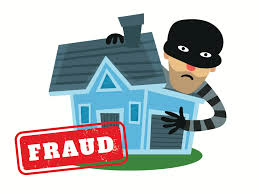
How to Sidestep This Trap
To navigate this treacherous terrain, it’s essential to arm yourself with knowledge and caution. First and foremost, only engage with free trials offered by well-established and reputable companies. Remember, in the world of marketing, there’s rarely such a thing as a genuinely free offer. Companies often have ulterior motives for distributing freebies—sometimes, they’re simply gathering your data to sell to third parties.
Before you hand over your credit or debit card details, take a moment to scrutinise the fine print. It’s here where many of the hidden traps lie in wait, ready to ensnare the unsuspecting.

The Lurking Threat of Loan Scams
Now, imagine another scenario: you’re in need of quick cash and find yourself scrolling through social media when an advertisement catches your eye. A company claims it can connect you with a government-backed loan or some other financial miracle. Hopeful yet cautious, you decide to reach out. This is where the loan scam begins its insidious dance.
Once you make contact, the scammers may request a fee under the guise of helping you secure the loan. Instead of delivering genuine assistance, they provide vague advice and demand further payments, all while asking for personal information that could compromise your financial security. In some cases, they’ll even direct you to call a premium 900 number, turning your simple inquiry into an expensive mistake. You might find yourself staring at your next phone bill in disbelief as charges accumulate into hundreds of dollars.
How to Navigate Safely
To protect yourself from falling victim to these scams, it’s crucial to understand that there are no shortcuts or magical solutions when it comes to loan approvals. Any information these scammers provide can be easily found through legitimate sources—books or reliable websites abound with knowledge about loan processes.
Even if the company appears credible on the surface, remember this golden rule: never pay an application fee for a loan. Such fees are illegal and serve only to enrich those who thrive on exploiting the desperate.
As you traverse the landscape of free trials and loan offers, keep your wits about you. Awareness and vigilance are your best allies in outsmarting those who would prey on your vulnerability.

The Deceptive Dance of Automatic Withdrawals
In a world overflowing with enticing offers, it’s easy to fall prey to the allure of free trials. Picture this: you stumble upon an advertisement that promises a fantastic product at no cost—just cover the shipping. It sounds too good to be true, right? Yet, lurking beneath this seemingly innocent offer is a potential pitfall known as the automatic withdrawal scam.
As you take the bait and enter your credit or debit card details to claim your “free” item, you unknowingly step into a web of deception. The fine print, often crafted with meticulous detail, reveals that by accepting this complimentary product, you are inadvertently subscribing to a service that will begin to withdraw funds from your account without your explicit consent.
Once these unscrupulous companies have your financial information, they will erect barriers designed to keep you trapped in their scheme. You may find yourself navigating through a labyrinth of customer service options on their website, only to discover that reaching a real human being is nearly impossible. Emails go unanswered, and phone calls lead to endless hold music. Frustration builds as you realise that cancelling your subscription is more challenging than signing up.
How to Sidestep This Trap
To navigate this treacherous terrain, it’s essential to arm yourself with knowledge and caution. First and foremost, only engage with free trials offered by well-established and reputable companies. Remember, in the world of marketing, there’s rarely such a thing as a genuinely free offer. Companies often have ulterior motives for distributing freebies—sometimes, they’re simply gathering your data to sell to third parties.
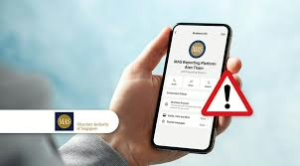
Before you hand over your credit or debit card details, take a moment to scrutinise the fine print. It’s here where many of the hidden traps lie in wait, ready to ensnare the unsuspecting.
—
The Lurking Threat of Loan Scams
Now, imagine another scenario: you’re in need of quick cash and find yourself scrolling through social media when an advertisement catches your eye. A company claims it can connect you with a government-backed loan or some other financial miracle. Hopeful yet cautious, you decide to reach out. This is where the loan scam begins its insidious dance.
Once you make contact, the scammers may request a fee under the guise of helping you secure the loan. Instead of delivering genuine assistance, they provide vague advice and demand further payments, all while asking for personal information that could compromise your financial security. In some cases, they’ll even direct you to call a premium 900 number, turning your simple inquiry into an expensive mistake. You might find yourself staring at your next phone bill in disbelief as charges accumulate into hundreds of dollars.
How to Navigate Safely
To protect yourself from falling victim to these scams, it’s crucial to understand that there are no shortcuts or magical solutions when it comes to loan approvals. Any information these scammers provide can be easily found through legitimate sources—books or reliable websites abound with knowledge about loan processes.
Even if the company appears credible on the surface, remember this golden rule: never pay an application fee for a loan. Such fees are illegal and serve only to enrich those who thrive on exploiting the desperate.
As you traverse the landscape of free trials and loan offers, keep your wits about you. Awareness and vigilance are your best allies in outsmarting those who would prey on your vulnerability.
The Employment Fraud Dilemma
In the realm of job hunting, one particular type of scam has emerged that preys on the hopes and dreams of individuals seeking fulfilling careers. This variation of deception, often dubbed the “dream jobs” scam, tends to fly under the radar of suspicion, primarily because, as noted by expert LaScala, it typically doesn’t require victims to pay any fees upfront.
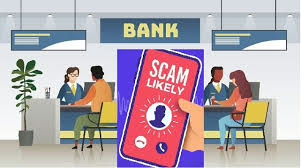
Imagine receiving an enticing job offer for a position you’ve always longed for—a role that seems tailor-made just for you. The fraudster, with a convincing demeanour, presents this alluring opportunity, but there’s a catch: they need to gather what they call “onboarding information” for your fictitious employer. This involves asking for personal details, including vital tax forms and direct deposit authorisations for your nonexistent salary.
At first glance, this may appear harmless, but beneath the surface lies a sinister plot. With all the information they’ve gathered, these scammers are now equipped to hijack your identity and drain your bank account without you even realising what’s happening.
Staying Vigilant Against Scams
So, how can one navigate this treacherous landscape of job offers? LaScala advises caution. The next time you find yourself on the receiving end of an email, a letter, or even a phone call from a recruiter promising you the job of your dreams—especially if it comes with strings attached—take a moment to reconsider. Remember, if something sounds too good to be true, it likely is.
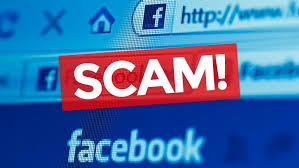
A golden rule to follow: never pay to land a job. Those who ask for money in exchange for employment opportunities are not offering anything of genuine value. Thankfully, there are numerous free resources available to assist you in your job search without costing you a dime.
The Lottery and Prize Scam Game
As we move through the landscape of scams, another notorious type emerges: lottery and award scams. These schemes come in various shapes and sizes. One common approach involves sending a message that informs the recipient they’ve won a prize, but to claim it, they must first pay a shipping fee. In other instances, scammers may request your bank account information under the guise of needing it for depositing your winnings—when in reality, their goal is to withdraw funds from your account instead.
Protecting Yourself from Scams
To steer clear of these fraudulent traps, it’s crucial to adhere to some straightforward guidelines. First and foremost, never pay any fees to claim a prize. Authentic lotteries and legitimate contest sponsors won’t demand payment. If you don’t recall entering a contest, chances are you didn’t win anything at all; always conduct thorough research before responding to any claims.
Additionally, if a caller asserts they represent the Federal Sweepstakes Board, be wary—such an entity does not exist; the government does not oversee sweepstakes operations. A clever tactic is to ask the caller to provide the numbers on your winning lottery ticket. If you can’t match those numbers with an actual ticket in your possession, it’s undoubtedly a scam.
General Precautions Against Bank Scams
Regardless of the specific type of bank scam at play, there are universal strategies for recognising and avoiding deceitful practices:
– Always safeguard your bank account information; never share it with anyone.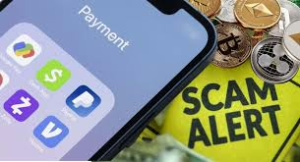
– Regularly monitor your bank account for any suspicious activity.
By remaining vigilant and informed, you can protect yourself from the clutches of these cunning scammers and ensure that your journey toward employment or financial rewards remains unscathed.
Maxthon
In the rapidly evolving realm of today’s digital universe, where virtual exchanges are constantly shifting and often unpredictable, ensuring personal safety while traversing the expansive online world has emerged as a crucial necessity. The significance of choosing a web browser that prioritises security and privacy is paramount. Among the myriad browsers vying for users’ preferences, Maxthon Browser emerges as a remarkable contender, skillfully tackling these vital concerns without charging its users a penny. This sophisticated browser is equipped with an impressive suite of built-in features, including an Adblocker and various anti-tracking tools, which are essential elements designed to enhance your online privacy.
Maxthon has successfully established a distinct position in the saturated browser market by committing itself to crafting a browsing experience that prioritises user safety and confidentiality. With a steadfast dedication to protecting personal data and online activities from a wide range of potential hazards, Maxthon employs an arsenal of robust strategies to safeguard user information. Utilising state-of-the-art encryption methods, this browser guarantees that sensitive data remains protected and confidential throughout your online adventures.

As for its compatibility with Windows 11, Maxthon truly excels in enhancing privacy during your internet explorations. Every feature of this browser has been meticulously designed with a focus on strengthening your privacy. From its potent ad-blocking functionalities to its thorough anti-tracking measures and dedicated incognito mode, these tools work in concert to eliminate disruptive advertisements and prevent tracking scripts that could compromise your online experience. As a result, users can surf the web with an increased sense of security. The incognito mode further amplifies this sense of protection, allowing individuals to navigate the internet without leaving behind any digital footprints.
In this digital age, where every click can reveal personal information, choosing the right browser becomes not just a matter of preference but a vital step towards safeguarding one’s online identity. Maxthon Browser stands ready to meet this challenge, providing an environment where users can feel confident and secure as they explore the vastness of the internet.
